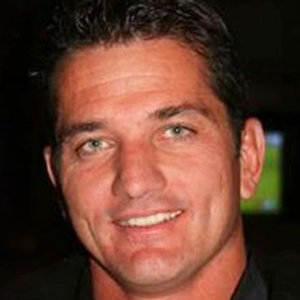
Joost van der Westhuizen last week claimed to have been cured from motor neuron disease by 'detox specialist' Anton Neethling. It now appears that Neethling has a criminal record and doctors are sceptical about his curative powers. Here's how to spot bogus cures and bogus doctors.
Hands up if you've ever received an advertisement for libido enhancers, or found youself sucked into an infomercial on TV promising huge weight loss in an astonishingly short space of time. Or an ad for a miracle cream that will stop ageing, or to take pain away, or both. Curing baldness is probably also on the list.
Infomercials can be very persuasive – by the end of the five-minute ad, you're almost convinced. You're tempted to phone and order one right now, as you can also win a prize if you phone quickly.
If you do – well, honey, you've been had.
Think about it for a moment. These products are riding the wave of peoples' fears – no one wants to be fat, flabby, be in pain, have cancer, have a small penis (if you're a man) or a flat chest (if you're a woman), or look old. So we're receptive, and someone's making a lot of money.
How do you spot a hoax without the benefit of medical knowledge? Here are some pointers.
The price. If a tablet could make you lose weight while you ate whatever you felt like, and ignored exercise, that would be the hottest property on the market (in fact, that's the Holy Grail of the pharmaceutical world, because it's the path to untold profits). So if you're seeing something available over the counter, at little more than the price of a six-pack of soft drinks, you don't need to buy it to know it's not going to work. When this miracle pill is developed, you'll know all about it - and you'll have to sell your granny to afford it.
A quick cure. It's just a question of unscrewing a cap, or popping a few tablets, or switching on the current and the problem is over. No sweat. Nothing could be easier. But you already know that if it were that easy to get a six-pack, to rid yourself of pain, or lose 20kg, or to detox while you slept, everyone would be doing it. Bottom line is there is no substitute for real effort.
False credentials. We're persuaded to buy by reliable-sounding references. However, few professionals would be comfortable putting their name to something they suspect to be dodgy, so that's why you might find obscure testimonials from "a doctor from Limpopo" or "a test done in an FDA-approved laboratory" on the packaging. Who is this doctor? Where is this laboratory and what were their findings? Oh yes, and then there is often a reference to a sort of misunderstood guru doctor – usually only known by his first name.
A secret formula. The product may be based on an ancient or secret formula, which is only known to the ancients in China or India - and, of course, the manufacturers. Right, so pharmaceutical companies, which spend millions on research, have not managed to uncover this, but a garage-lab in Pretoria East has? If the product works, all the pharmaceutical companies need to do, is buy some, analyse it themselves, and replicate it. It's that easy.
Satisfied clients. Clients for whom this product supposedly worked, talk at length about precisely how wonderful it is. But these are all undocumented case histories and testimonials by people whose personal details are vague (John from Benoni) and they are certainly not contactable. The before and after pictures are also often far too good to be true, even allowing for good lighting and spray tan. More than once, so-called satisfied customers have been found to be actors, paid to do the job.
Astonishing claims. A product which is claimed to cure a disease that baffles doctors and scientists, should be treated with suspicion. The manufacturers are playing on peoples' desperation. If it works, doctors prescribe it. And if something is claimed to address a number of ills, it's equally suspect.
Scant medical information. There are few medical facts provided - and if they are, they are out of context, or questionable. You do not detox through your feet, no over-the-counter remedy is strong enough to make a real difference to serious pain. Oh, yes, and wrinkles are forever.
A pay-back offer. This is supposed to set a potential customer's mind at rest. If the product doesn't work, you can get your money back. It's an old trick, relying on the fact that few of us would bother to try. For those that do, it's not that easy: how can you prove you used it properly?
Pressure. There is often an indication that stocks are limited and that you need to place your order quickly. Or, you are offered an additional prize or discount if you phone within a certain time limit – the manufacturers want you to order the product before you can have second thoughts. And by the way, they have warehouses of the stuff. When you want to rip off the public, you come prepared.
Visual and audio assault. The ad is so loud, so persistent, so hysterical, that it cannot but attract your attention. Something that works, doesn't need over-the-top hype. A dead giveaway is if the product is named more than five or six times.




 Publications
Publications
 Partners
Partners









